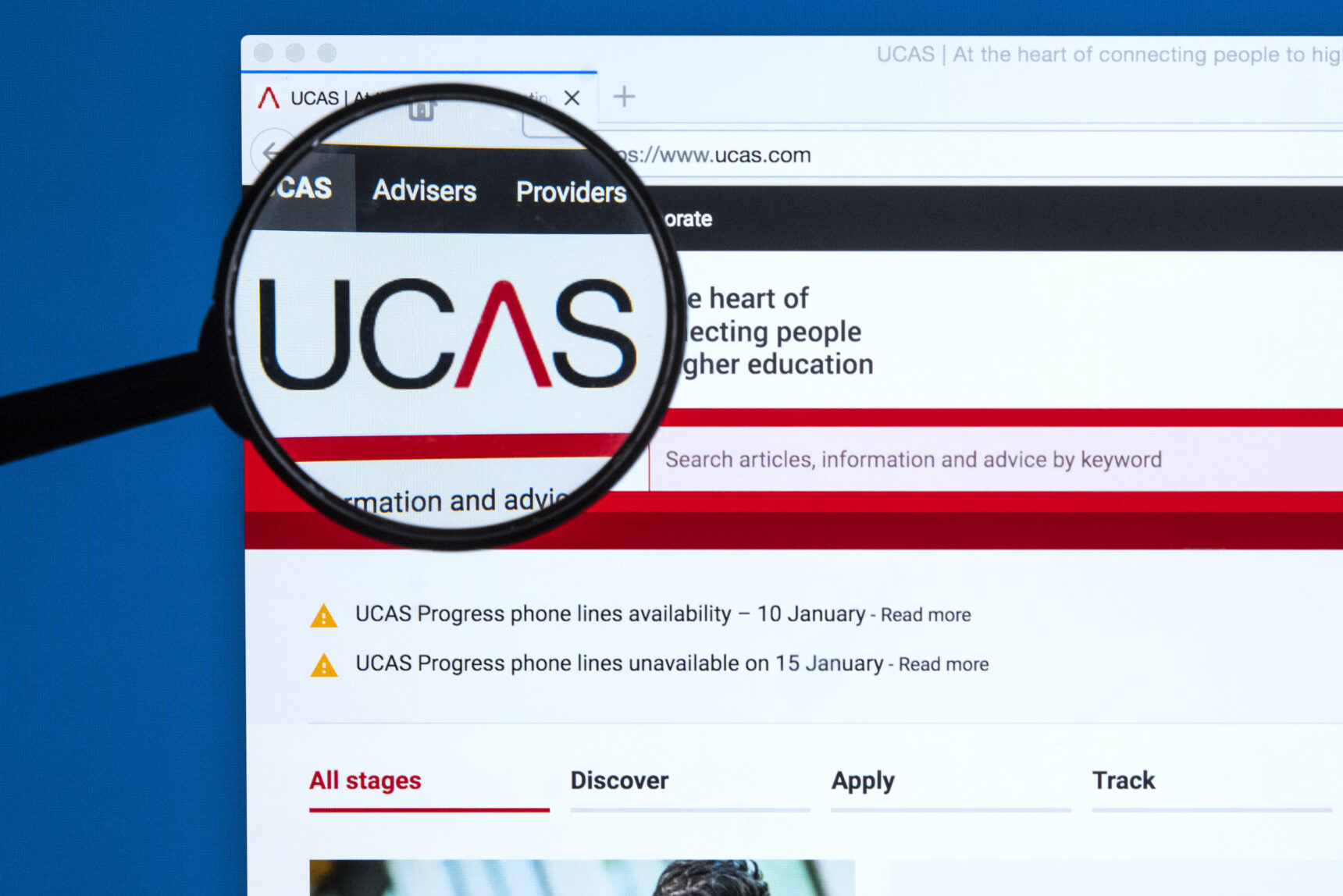Contents:
A reference is an essential part of your UCAS application. It helps universities understand your academic abilities, work ethic, and suitability for your chosen courses. But how do you actually get one—and what if you’re applying independently, without a school or college?
This guide explains what a UCAS reference is, who can write it, and how to arrange one, whether you’re in school or applying as a private candidate.
What is a UCAS reference?
A UCAS reference is a written statement that supports your university application. It’s usually written by a teacher, tutor, or other professional who knows you academically.
Universities use your UCAS reference to understand:
- Your academic strengths and potential
- Your attitude, motivation, and approach to learning
- Any extenuating circumstances that might have affected your performance
- Why you’re suited to your chosen degree or subject area
Your referee uploads the reference directly to your UCAS application, so you won’t usually be able to see what they’ve written unless you specifically request a copy.

How to get a UCAS reference
If you’re at school or college
If you’re currently studying at school or college, getting your UCAS reference is usually straightforward—your teachers will handle most of the process for you.
Who writes it: Usually your form tutor, teacher, or head of sixth form. They’ll often gather comments from your subject teachers to build a complete picture of your progress and strengths.
What you need to do:
- Tell your teachers early that you’re applying through UCAS.
- Share a draft of your personal statement and remind them of your achievements, responsibilities, or relevant work experience.
- Give them plenty of time—references can take a while to prepare.
- Submit your application by your school or college’s internal deadline so they have time to add your predicted grades and reference before sending your application to UCAS.
Note: If you’re applying to Oxbridge, your deadline is much earlier than for most universities, so talk to your teacher or tutor well in advance.
Top tip
Your teachers want to help you succeed. The more information you give them, the more personal and supportive your UCAS reference will be.

If you’re an independent applicant
If you’re applying through UCAS without being enrolled at a school or college, you’ll still need a reference—but you’ll need to arrange it yourself. Don’t worry: there are several ways to do this.
Each university (and sometimes each course) may have its own rules about references, so always check directly with your chosen universities to find out their requirements and share this information with your referee. For example, the University of Cambridge has the following page: Writing a UCAS reference for undergraduate applicants.
Once you have checked for any specific requirements, here are some options to consider:
1. Ask a former teacher or tutor
If you’ve recently left school or college, get in touch with a teacher who knows you well. Many schools are happy to provide a UCAS reference for former students, especially if you left within the past year or two.
When you contact them:
- Explain that you’re applying to university as an independent applicant.
- Share your UCAS deadlines.
- Provide an updated list of your qualifications, predicted grades (if applicable), and a draft of your personal statement.
If they agree to provide a reference, they should be able to give you a “buzzword” to enter in your UCAS application, connecting it to the school or college.
2. Ask a private tutor or online education provider
If you’ve been studying privately—for example with an online course provider or tutor, they may be able to write your UCAS reference. They should know you well enough to comment on your academic ability and suitability for your chosen course.
Some tutors or providers can also provide predicted grades if they have the necessary qualifications and experience to assess and grade your work. Check with them as early as possible to see whether this is something they can provide.
If you have a PMT tutor, you can find specific guidance on UCAS references in the Support and FAQ section of the tuition platform.

3. Ask an employer or volunteer supervisor
If you’re taking a gap year, working, or volunteering, you might be able to ask an employer or volunteer supervisor for a reference. However, the reference should focus on your academic skills, attitude to learning, and suitability for the course.
Again, check with your chosen universities for any specific requirements—for example, some may not accept references sent from personal email accounts, requiring a professional or institutional address instead.
4. Use a reference service from a UCAS-registered centre
Some UCAS-registered exam centres and online schools offer reference services and/or predicted grades for private applicants. This may involve sitting mock exams, and costs vary by provider. If you take this route, check all details carefully, confirm any costs, and start well before the application deadline.
Whoever you approach for your reference, once they agree, you can add their details to your application. UCAS will then contact them directly and explain what they need to do.
Important: References from family, friends, partners, or ex-partners aren’t permitted and could result in your application being cancelled.
What makes a strong UCAS reference?
A strong UCAS reference should:
- Highlight your academic achievements and potential
- Explain your strengths in relevant subjects
- Describe your attitude towards study (e.g. motivation, independence, teamwork)
- Include context about your background or any challenges, if relevant
- Support your chosen university courses
Your referee doesn’t need to repeat everything in your personal statement, but their comments should reinforce and back up what you’ve said about your skills, interests, and achievements.

How to help your referee write a great reference
Even though you usually won’t see the finished UCAS reference, you can make your referee’s job much easier by providing them with the right information.
Provide:
- A copy of your personal statement (or draft)
- A list of your qualifications and any predicted grades
- Your university course choices and reasons for choosing them
- Details of any relevant work experience, extracurriculars, or achievements
- Details of any specific reference guidance provided by universities
With your consent, your referee can also explain any challenges that have affected your education, such as health issues, personal circumstances, or additional learning needs. UCAS provides a specific section of the reference where referees can include any extenuating circumstances.
If you’re applying independently, you can also share UCAS’s guide to writing undergraduate references for independent applicants with your referee.
Remember: Be polite, professional, and organised—and always thank your referee afterwards!
Your UCAS reference is a vital part of your university application, helping admissions tutors understand your strengths and suitability beyond your grades.
If you’re in school, your teachers will handle the reference for you. If you’re a private candidate, you’ll need to take the initiative—but with a little planning, you can secure a strong, supportive reference that helps your application shine.
Need more help with your UCAS application?
Check out these articles on writing a standout personal statement:
FAQs
Do you need a reference for UCAS?
Yes, most UCAS applications require a reference, which must be included before you can submit your application.
In some cases, you may be able to apply without one, but only if you’ve contacted each of your chosen universities or colleges and they’ve confirmed that a reference isn’t required.
Who can write a UCAS reference?
Your UCAS reference should be written by a teacher, tutor, or another professional who knows your academic abilities—usually someone from your school or college.
If you’ve been out of education for a while, you can ask an employer or volunteer supervisor instead, but always check with your chosen universities first to make sure they’ll accept it. Family members, friends, or partners can’t write your reference.
How many references do I need for my UCAS application?
You only need one reference for your UCAS application. If you feel an additional reference would strengthen your application, check with your chosen university or college to see if they will accept another one sent directly.
Can I see my UCAS reference?
You usually won’t be able to see your reference. However, you can request a copy from your referee. If that’s not possible, you can also request a copy of your application from UCAS under the Data Protection Act.







Comments